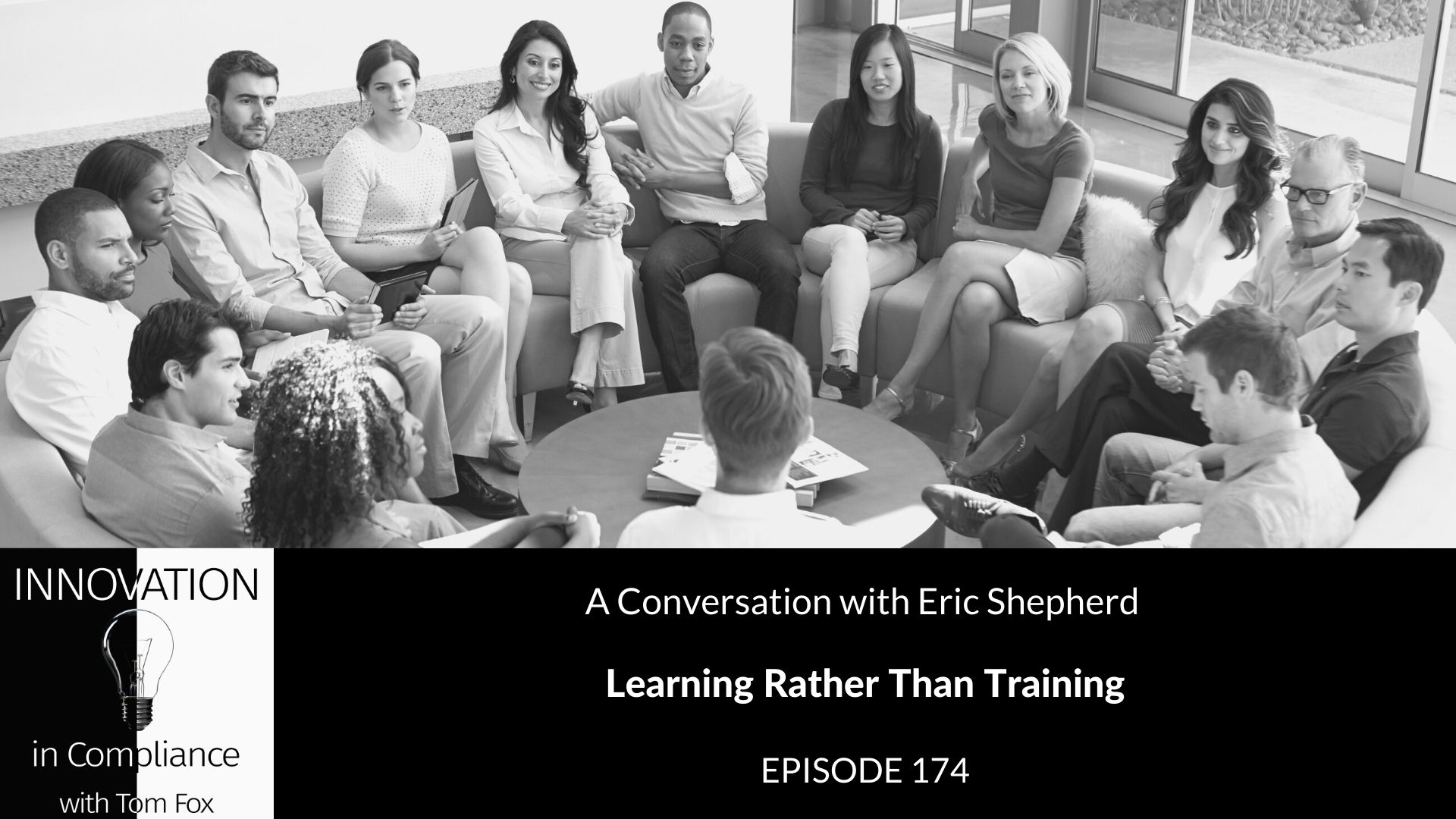
Eric Shepherd is the former CEO of Question Mark. In 2019 he stepped down and now runs a non-profit company called Talent Transformation, focused on helping individuals understand the future, leadership, and learning. Tom Fox welcomes Eric onto his week’s show as they discuss the ways organizations can better develop through a focus on learning rather than training.
The Rise in Technology
With the rise in technological advances and automation, machines will be replacing human tasks, and what this means is that individuals will need to acquire new skills. “People will need to learn new skills and be more agile in their approach to work,” Eric says. “Just as technology is going to disrupt a lot of jobs, we can also use technology to help us learn the skills required for the 21st century,” he adds. He iterates that communication, collaboration, and conflict resolution are some of the most important skills that need to be developed and nurtured. Eric also adds that employees will feel bitter at having been displaced, and it is up to society to provide learning systems to help them transition into new roles.
Talent Transformation Pyramid
Eric had a good understanding of assessing knowledge skills and abilities but not of assessing behaviors, emotional intelligence, or personality traits. Understanding how mindset and skillset would support readiness and performance was important. “How would people be ready to do tasks and how would they perform but being based on both their behaviors and social-emotional intelligence,” he adds. He explains to Tom that the concept was hard to explain to people, so he created the ‘talent transformation pyramid’, showing how personality traits and cognitive systems would support performance at an individual level, team level, and organizational level.
CEO Sets The Culture
Tom asks Eric what he sees as the CEO’s role in talent transformation, especially in regards to the coronavirus pandemic. Eric stresses that the CEO has to set the organizational culture and that that culture would differ depending on what business they’re running. In these uncertain times, employees are being bombarded with different fears that will affect their work performance. CEOs need to address those fears and establish a culture that says wellness, psychological safety, and inclusion are important. It has to come from the top, he argues.
Learning Through Culture
Eric reiterates that the majority of repetitive tasks are going to be replaced by machines. What this means for humans in the future is that there will be more focus on creativity, communication, collaboration, and cooperation. Learning through culture will see organizations become more successful because they are being more creative and embracing the possibilities of the future. “The company that can embrace those talents and those skills is actually going to be more efficient, and having greater efficiency would lead to greater profitability simply because they’re more agile and they’re more nimble.”
Learning Rather Than Training
Tom asks Eric to explain how the pandemic has changed his approach. Eric explains that now his company acts more as business advisors rather than doing actual assessments. With the impact of COVID-19, Eric has been uploading a lot of content to YouTube and his company’s website. Tom also asks Eric what companies need to think about in the next few years in regards to talent transformation. “Think about learning rather than training. Think about culture.”
Resources
Eric Shepherd | LinkedIn, Twitter
TalentTransformation.com
eric@talenttransformation.com
Talent Transformation by Eric Shepherd and Joan Phaup





